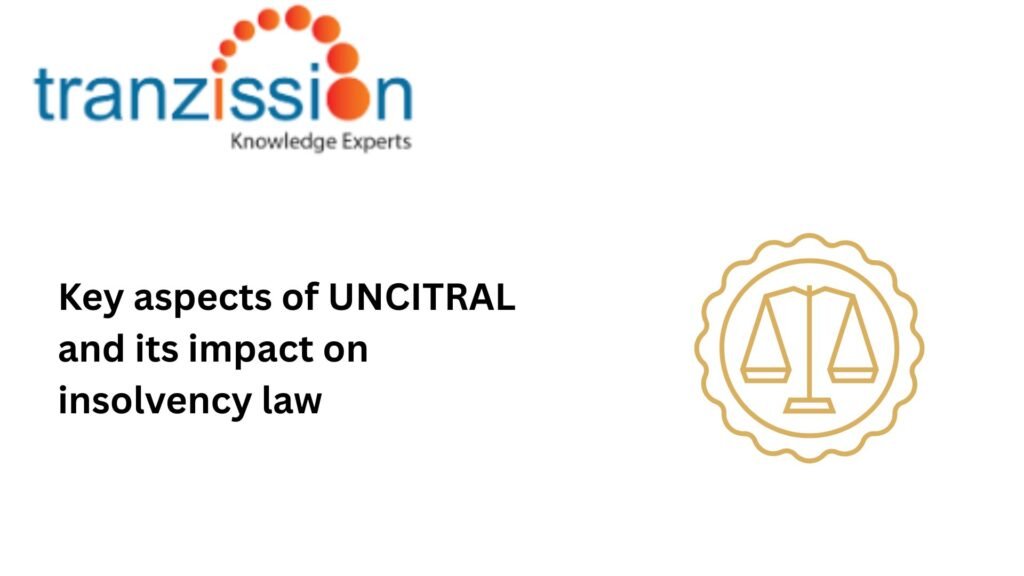Blog
Key aspects of UNCITRAL (United Nations Commission on International Trade Law) plays a crucial role in international insolvency law through its Model Law on Cross-Border Insolvency, which was approved by the United Nations General Assembly through a resolution in 1997. The Model Law allows for nations to alter, exclude, or include certain provisions in addition […]
When one company within a group becomes insolvent, its financial troubles can affect group companies due to shared financial obligations, making separate insolvency proceedings inefficient. Most insolvency laws are designed to handle individual companies, including the Insolvency and Bankruptcy Code, 2016 (the IBC). Therefore, a dedicated Need for Group Insolvency framework is needed to effectively […]
Companies are now evaluated on their environmental impact, social responsibility, and governance practices, and not just their financial performance. Therefore, they are facing pressure from investors to improve these factors, leading to increased focus on sustainability initiatives, reporting, and transparency to attract capital. In India, there is a need for detailed mechanisms specifically on ESG […]
When a power company is financially distressed, its creditors can initiate an insolvency resolution process where IBC in the Power Industry play important role, to either restructure the debt or find a new investor to take over the project. This framework facilitates a more streamlined approach to managing financial difficulties within the power sector, which […]
Insolvency laws aim to provide a framework for dealing with situations when an individual or company is unable to pay their debts as they become due. It ensures fair and equitable treatment of creditors and potentially allows for the recovery of assets. The framework helps to ensure that creditors can recover their dues, reducing the […]
To have a better understanding of cross-border insolvency law, it is important to compare the insolvency laws of other countries with those of India and examine current legislation on cross-border insolvency. International insolvency laws affect local practices, especially for financially distressed companies with assets outside India’s jurisdiction, as the current IBC and relevant regulations provide […]
To understand the difference between the SARFAESI Act and IBC, it’s important to recognize that the Insolvency and Bankruptcy Code (IBC), introduced in 2016, was designed to streamline the process of managing an insolvent’s liabilities and creditor claims through a structured, time-bound resolution. Unlike the SARFAESI Act, which primarily empowers secured creditors to seize and […]
All stakeholders, including NGOs in Insolvency Cases (non-governmental organizations), have an important role in insolvency matters. A non-profit or a charitable company is considered a section 8 company, incorporated under the Companies Act, 2013 that has defaulted the debt or payment of services availed by them to promote its objectives. When such a company faces […]
The Insolvency and Bankruptcy Code, 2016 (IBC) aims to revive, restructure, or rehabilitate insolvent companies. Insolvent companies face several legal and financial issues, which they overcome with the aid of other professionals and entities. Asset Reconstruction Companies (ARCs) are one of the many options available to them. What Are Asset Reconstruction Companies (ARCs)? Asset Reconstruction […]
The Insolvency and Bankruptcy Code, 2016 (the IBC) came into effect with several objectives, such as maximising the value of debtor’s assets, promoting entrepreneurship, ensuring timely resolution of cases, and balancing the interests of all stakeholders. By fulfilling its objectives, the IBC on Economic Growth contributes of India. The Role of IBC on Economic Growth […]


